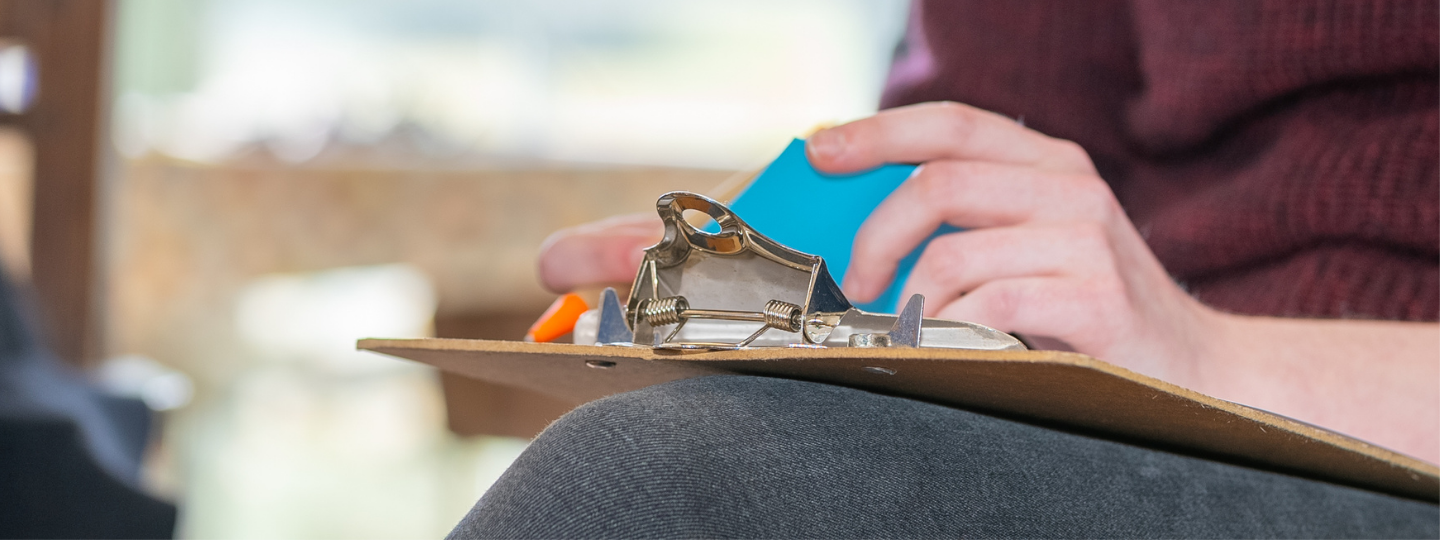Grief and loss in exceptional times
Grief and loss in exceptional times
Monday, 20 July 2020
During the past few months so much has changed in our world. Certain things continue – people get sick, people die, people die suddenly. And sadly, many people have died of Covid-19.
But, everything feels quite different now, when the usual rituals and coming together are no longer available to us. There is no right way to feel or to grieve the loss of someone we love.
However, there might be some things we can do to ease the pain and strangeness a little. Of course, they will be different for everyone and it’s about finding your own way.
Saying goodbye
This can be especially difficult when someone we love is in hospital or a nursing home, and we are not allowed to visit. If they are well enough to talk on the phone or Facetime, then this can be a helpful way to connect.
You may prefer to remember the person as they were when they were well, and that’s OK too. Try writing a letter to express what you would like to say or what you didn’t get to say. This can feel supportive whether your loved one reads it or not.
Managing the funeral or service
Funerals and services are very different now; only attended by a few people. If you’re not able to go to the service, then stay in touch with friends and family who are attending virtually. Remember, you are not alone.
When attending via live-stream, try to watch with friends and family. If this is not possible, connect with someone afterwards either on the phone or text.
It’s also OK not to watch, or to step away halfway through if you prefer. You could think about setting up or attending a virtual family gathering afterwards. Come together to remember your loved one, exchange photos or play music that reminds you of them.
Other ways to remember
Some people find it helpful to create a memory box, either on your own or with family and friends. Gather photographs, objects, items that remind you of your loved one. Decorate your box.
If you have a garden space or even a pot on a windowsill, planting some flowers or a tree is a lovely way to honour of them. Many of the garden centres are opening up now, but you can also buy online, or ask neighbours or friends to help.
Allow your feelings
You are likely to feel a whole rush of different feelings at this time. These can include things like:
- feeling OK one moment and not the next
- moving from sad to confused to angry to happy in a few minutes
- feeling relief rather than grief
- loneliness, or preferring the privacy and quiet time you have just now
- physical feelings such as a heaviness in your chest or churning in your stomach
- maybe you don’t feel that much at all.
It can sometimes help to gently name and acknowledge the feelings, without judgement and without moving too deeply into them. When names don’t come easily for a feeling, make up a word that works. Bleurgh, fuzzy, sparkly, numb – whatever word or nonsense word that works for you. Try and allow your experience, no matter what it is.
Use your senses
If you are experiencing strong feelings and struggling with grief, using your senses can help to ground you. Sometimes it can be helpful to ground through your hands and feet.
Walk in the back garden or in your bedroom in your bare feet. Steal some playdoh from your younger sibling and roll it in your hands.
Gather together a ‘soothe box’. Put in an item for each sense. Something soft like a cosy blanket or jumper, a smell you like, a picture that calms you, and some music that you like. Take time for yourself. Wrap yourself up, with your favourite hot drink and listen to music.
>> Listen to Jigsaw clinician Leona talk through a grounding tool called ‘ACE’
Talk or don’t talk
Some days it might help to be connected with others, and sometimes you might want to be alone. That’s OK. Just be careful of cutting yourself off completely. It can be good to find ways to connect with other people that don’t involve much talking. Watching movies or playing games together, either online or with people in your home.
Remember it’s OK to laugh and to have fun in moments, and that it’s actually quite healing. Talk to family and friends about your loved one who has died if that feels right. Writing down how you feel is good too if you’re not ready to talk.
Do what helps
This is the time to do those things you enjoy and are able to do in your own home. For example:
- use a creative outlet that you find supportive, like playing an instrument
- play video games, or watch a favourite series or film
- do your best to eat well and rest well, even if you don’t feel like it
- being in nature can be very healing, so do try to get outside.
You might find comfort in returning to your study/work routine. Or perhaps concentration is difficult so give yourself permission to do nothing. Just let things settle as they are with no judgement.
>> Get some ideas from young people and Jigsaw clinicians about self-care during covid-19
How to support someone through grief
It can be difficult to support a friend when they have lost somebody. Maybe you have never experienced something like this before, and don’t know what to say. Sometimes it can feel awkward, but don’t be afraid to ask your friend about what happened. They may appreciate you talking to them directly about their loved one.
They will tell you if they don’t want to talk. If they do, you are giving them a valuable space. Call or text, you write a letter or a card, expressing your concern if you find it difficult to bring up. Remember, your friend might just want to get on with things as normal and play and laugh. It’s important that you respect that too.
If your friend’s experience has made you feel upset or worried about your own friends and family, be sure to talk with other people about this.
Grief and loss support services
Find more information and resources on the Barnardos website. The Irish Hospice Foundation have helpful information for parents.
Give yourself time to come to terms with your loss. However, you may want to talk to someone outside of your network. Find out more about services for those over 18’s or under 18’s.







